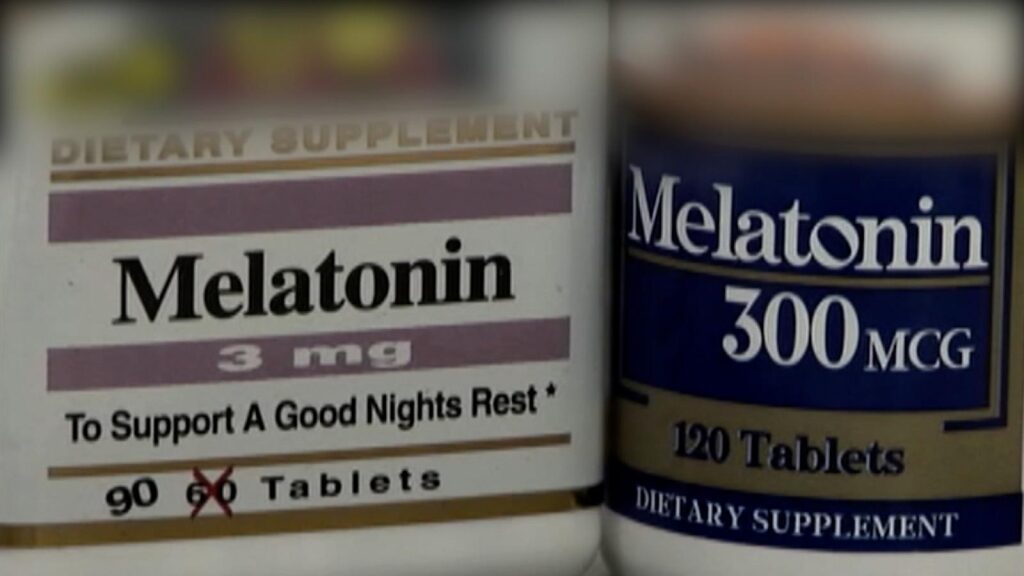Warning for indiscriminate use of melatonin

Recently there have been warnings about the excessive use of melatonin, especially to fall asleep. People tend to exceed the allowed limit of this supplement without knowing the consequences.
The false belief that, because it is a hormone produced by the body, it does not cause damage, is wrong. If you don't know the whole picture or the implicit background, the reality could be shocking.
Over-the-counter melatonin and its use to fall asleep
In essence, the general instructor in the division of sleep medicine at Harvard, Rebecca Robbins, revealed an interesting finding. She verified the tendency of daily life to consume large amounts of melatonin, even outside the normal ranges.
The conclusive research was published in the specialized medical journal JAMA. It shows that, within the US population, the intake of melatonin in tablets doubled in percentage.
This study reveals that the adverse effects of the pandemic have also had an impact on sleep. Therefore, society opts for the search and taking of this type of sleeping pills. The problem is that, without a specific dosage, intoxications are just around the corner.
Melatonin overdose is a reality that can cause particular symptoms. From headache, lethargy, drowsiness, dizziness, to other gastrointestinal signs such as nausea, vomiting or diarrhea.
All this without counting other more dangerous clinical manifestations such as confusion, stupor or disorientation in time and space. Therefore, it is convenient to alert the population about how dangerous this supplement can be in high amounts.
However, not everything seems lost, since said magazine clarifies that melatonin continues to be safe. As long as it stays within the stipulated range and is used for common sleep disorders or the famous jet lag, adverse effects are minimal.
The main problem is in its regulation
In addition to the pandemic, for more than 15 years the United States has experienced a failure in the regulation of the product. Not all those related to melatonin are approved by the FDA ( Food and Drug Administration ), representing a public health problem.
That circumstance also overshadows efforts to promote better use of the supplement. In turn, it raises concern because several prospects use not just melatonin, but other additives.
According to the criteria of Rebecca Robbins, the containers with these tablets do not always indicate the pharmacological ingredients. There have even been documented cases where the dosage printed on the package is not actually correct.
Through a market survey, it was found that some non-certified products contained higher doses of melatonin than what was marked. Others added compounds such as serotonin and excipients with a harmful value for the body if consumed in high quantities.
For his part, he ended by delimiting that the current community prevails in bad habits. On a daily basis, there are many reported cases of individuals who are not governed by the maximum dose of 5 milligrams daily. On the contrary, they tend to go beyond it without paying attention to possible complications.
What is the role of melatonin in the body?
According to the American National Library of Medicine, melatonin is a hormone produced by the body. Its role is to regulate the circadian cycles or the day and night rhythm, promoting the onset of sleep.
The less sunlight, the higher the percentage of melatonin that is generated. In this way, it contributes to the physiology of sleep, avoiding problems or disorders related to it.
In the opposite case, sleep disorders appear when the individual secretes low amounts of melatonin. Because of this, manifestations such as insomnia are more common than they seem to be.
At the same time, it is a hormone capable of being obtained through laboratory processes in supplements. However, the medical community warns that its application is exclusively endorsed under prescription or prior professional criteria.
This fact lies in the fact that the Natural Medicines Comprehensive Database classifies it as "possibly effective". That is, there are no data or crucial information that certifies the true therapeutic effects of melatonin.
It should be noted that the belief in which melatonin is compared to herbs must be rooted out. Although it is of natural or organic origin, it is synthesized and secreted by the pineal gland, located near the encephalon (brain).
Long-term adverse effects
It is written in the medical literature that melatonin in doses less than 5 milligrams is harmless. It means that it does not cause side effects or noticeable health problems in the patient.
However, if dependency increases, especially for those unregulated products, a good outlook does not become clear. On the contrary, the percentage of risk increases exponentially.
As mentioned above, unlicensed melatonin products tend to exceed the dosages they actually claim. In turn, they are combined with serotonin and another series of chemical excipients that act as enzymatic transporters.
The duality of this feat is that cross-reacting poisoning with different drugs is of concern. For example, the one in which a cocktail is combined with melatonin, serotonin and powerful anxiolytics or antidepressants.
In the most severe presentations of overdose, the patient experiences stupor and syncope. Over time, seizures become protagonists of the clinical picture along with muscle paralysis.
If immediate medical attention is not sought, coma or even death are the expected to come. Therefore, it seems useful not to ignore the warnings of the medical community in order to prevent these complications and many more.
